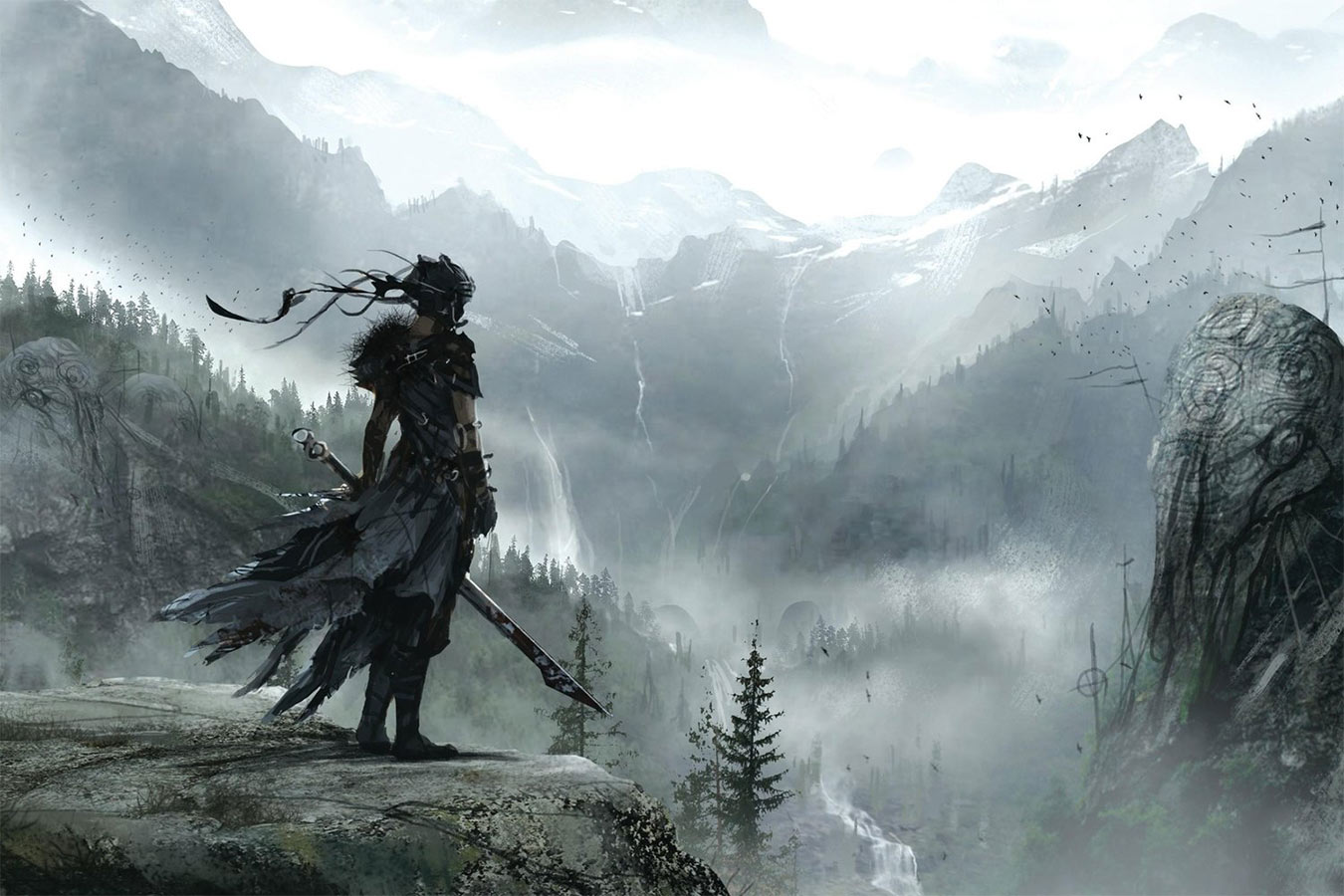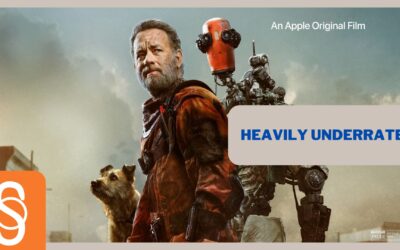Hellblade: Senua’s sacrifice is a game based on Psychosis.
Created by Ninja Theory and a self-proclaimed independent AAA title in the gaming industry.
A dark fantasy action-adventure game.
AAA titles are what a blockbuster movie looks like in cinema.
Hellblade was released on August 8th 2017. It took me time to consider it for a recommendation, as I was not sure, if it will fit the theme of our conversation here and I also just completed it 2 months ago.
Finally when I have some time to write about it, I have come ahead with this article.
But what is Psychosis?
Here is what Webmd.com has to say about it,
“When you lose touch with reality and see, hear, or believe things that aren’t real, doctors call that psychosis.
You may have delusions. That means you hold on to untrue or strange beliefs. You might also have hallucinations.
That’s when you imagine you hear or see something that doesn’t exist.”
With a thought of bringing the mid-size game back, the game is clocking in around at 7 to 9 hours when you first set out to complete it.
Experience 3d binaural 360° sound, where voices are constantly either guiding you or misguiding you. They have tried to push a earphone experience into the mix by prompting players to experience the game in its actual and best form. Speakers still do great and probably a 5.1 system can handle as much as the earphones but the real insanity lies where it is mentioned.
The POV is right above the shoulder. All figures, including you, appear life size and huge in certain cases.
The character design is ferocious and because of which it adds to the vibe of the myth and the legend.
You are just dropped into the game and the rest is up to you to figure out.
Illusions, hallucinations and finding a way where you saw none an hour or two ago.
The Nordic world we inhabit in Senua is as real as it could get but it also could be considered as a physical representation of the world inside her, all the monsters and dark creatures she is killing or struggling with, running from, are her own deep psychological fears and doubts, her own creation.
Maybe even in an alternate reality, Senua could be a girl sitting on her bed at home, depressed and fighting the monsters of her life like that.
The chief creative Ninja and the co-founder of Ninja Theory Tameem Antoniades speaks about the premise of the game and the thought behind its conception, which is grappling with reality and how being an independent game helped them tackle and convey such a challenging and controversial issue.
He also speaks about how ‘our mental universe can only see a tiny fraction of the physical universe and how far we are removed from objective reality that the whole concept of it, from a human perspective at least, is near enough meaningless.’
The elements of the objective reality of the world and the subjective perspective differs quite starkly.
When saints speak about self-realization, they speak about becoming aware of the one objective reality and nothing else.
Quoting Tameem Antoniades,
“To understand this in a more practical way, consider vision. Light is a narrow spectrum of electromagnetic waves that enter our eye. How much of the electromagnetic spectrum can we see? About one ten trillionth. From narrow minute variations in wavelength, we categorize the world according to color, shape, form, movement and higher social concepts like race.”
Going forward he adds his thoughts about the survival of our species through mental diversity and how there is a stigma about thinking differently. He mentions of prominent figures like Gandhi and Churchill, who heard voices and have seen visions and states that they don’t fit the definition of being mentally ill for us.
This is also very interesting that the video editor of Ninja Theory Melina Juergens, eventually transformed into Senua. Here’s a diary video about it.
A haunting and gripping story of love, fear, darkness and the will to endure above it all.
The game is a feeling along with a story. It kind of makes you empathetic towards depression and other such dark traits.
You understand, that each one of us could be fighting a battle within which no one knows about.
In the game itself, you always wait for a moment of release, somewhere where you could rest a little before heading into the darkness again, but no! Never, the intensity in the game keeps on rising consistently at an equal pace until the very climax of the game. That is how depression works, a person going through it might see a ray of hope one day, a chance to rest and feel good and then suddenly the gripping vice grip of hurt and pain returns with much more force and intensity the next time.
By the time you reach the ending of this game you are ready for everything the world throws at you.
At this precise moment in the game
When you reach that point, you feel a certain sense of rage taking over you. Not in the literal sense but you are like, “oh! Come on, you wanna come get me, try it, let the whole army of you let loose on me, I am ready.” By then you are only trained enough that you can take on a horde of enemies but the AI is still smart and kind of numbering themselves by the skill of your playing, you can select a difficulty mode like that, set it to automatic, a whole different experience really.
The ability of this game to make you feel exactly how they wanted the player to feel at certain moments is noteworthy. I remember, listening to the OST of the battle on the bridge to Helheim on YouTube and if you read the comments, most of the players felt exactly the same way I did.
Such nuances are tested during the usability tests in a gaming studio and I must say they have hit all the right chords.
The combat is thoughtful, done really well up to a point where you can really keep fighting with thought without taking any damage and also be extremely surprised when the enemy AI suddenly tricks you and strikes you before you could move, it was the first in my gaming experience that an enemy AI reacted so dynamically to my movements. Not on this bridge but right after it. You will know what I am saying when you play it.
This game is kind of a journey you take within yourself, as you play it, you start becoming braver. It is tense and it is scary during several instances. If you are one of those who does not get scared while watching horror movies, then I cannot be sure if it will have the same effect on you.
But you can try.
Conclusion
The music, the setup, the lore and dialogue, how internal conflicted is portrayed as monsters to kill and how freeing yourself from the curse, is actually freeing your own self from yourself.
Noticing that redemption actually lies at the heart of understanding and not something to be looked for outside.
Sometimes letting go, is taking everything back.
A tremendous feat achieved by such a small team.





